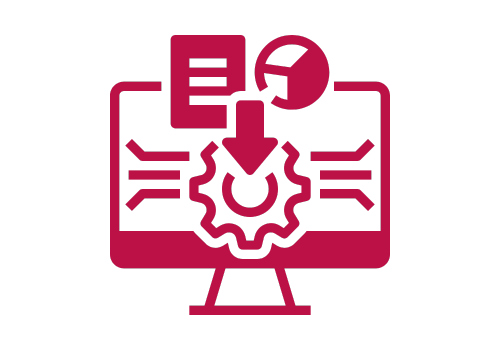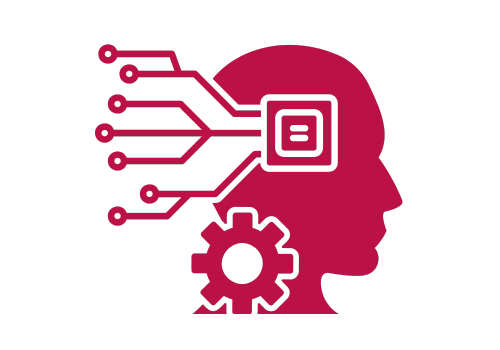APACHE AIRFLOW
Why This Training?
In an age where data drives decisions, the need to efficiently manage, schedule, and orchestrate complex workflows becomes paramount. Apache Airflow stands out as a potent tool designed for these challenges. This training unravels the intricacies of Airflow, guiding participants to master the art of data workflow orchestration and transform their data operations.
Duration: 9 Hours (online / virtual live session)

Who Should Attend?
Data engineers seeking to streamline data workflows.
Data scientists aiming for smoother model training and deployment pipelines.
DevOps professionals enhancing automation capabilities.
IT managers and decision-makers overseeing data infrastructure.
Anyone enthusiastic about workflow orchestration and automation in the data realm.
Data scientists aiming for smoother model training and deployment pipelines.
DevOps professionals enhancing automation capabilities.
IT managers and decision-makers overseeing data infrastructure.
Anyone enthusiastic about workflow orchestration and automation in the data realm.

Course Highlights
Foundational Grasp: Dive deep into the significance of workflow orchestration and Airflow's core concepts.
Hands-on Setup & Deployment: Learn to set up Airflow and write your first DAG.
Hands-on Setup & Deployment: Learn to set up Airflow and write your first DAG.
See more
Advanced Techniques: Master operators, monitoring tools, and logging methods.
Scalability & Security: Scale your Airflow setup and ensure utmost security.
Integration Know-how: Seamlessly connect Airflow with popular data tools and platforms.
Industry Best Practices: Imbibe best practices for efficient pipeline design and error handling.
Peek into the Future: Stay ahead by understanding Airflow's upcoming features and trends.
Interactive Discussions & Q&A: Engage in stimulating discussions and get your queries resolved by experts.
Scalability & Security: Scale your Airflow setup and ensure utmost security.
Integration Know-how: Seamlessly connect Airflow with popular data tools and platforms.
Industry Best Practices: Imbibe best practices for efficient pipeline design and error handling.
Peek into the Future: Stay ahead by understanding Airflow's upcoming features and trends.
Interactive Discussions & Q&A: Engage in stimulating discussions and get your queries resolved by experts.

Pre-requisites
A foundational understanding of data operations and processes.
Familiarity with basic programming concepts.
Prior experience with database systems will be beneficial but not mandatory.
Familiarity with basic programming concepts.
Prior experience with database systems will be beneficial but not mandatory.
Training Materials Needed by Participants
A laptop or computer with a stable internet connection.
Apache Airflow software (installation guide will be provided).
Any modern web browser (Chrome, Firefox, Safari).
Access to a text editor or IDE for writing and editing code.
Recommended: Access to a text editor or IDE for writing and editing code.
Write your awesome label here.
Training Content
Apache Airflow: Mastering Data Workflow Orchestration
1. Foundations of Workflow Orchestration with Apache Airflow
Objective: Establish the significance of workflow orchestration and introduce Apache Airflow.
1.1 Introduction to Workflow Orchestration
1.1 Introduction to Workflow Orchestration
- The essence of workflow orchestration
- Evolution of orchestration tools
1.2 Deep Dive into Apache Airflow
- Core concepts: DAG, Operator, Task, Executor
- How Airflow stands apart from other tools
1.3 Setting Up & Writing Your First DAG
- Installation, database initialization, web server, and scheduler
- Writing and understanding a basic DAG
2. Advanced Orchestration Techniques with Airflow
Objective: Delve into Airflow’s advanced capabilities and enhance monitoring and security understanding.
2.1 Operators in Airflow
2.1 Operators in Airflow
- Overview of key operators
- Custom operator development
2.2 Monitoring, Logging, and Debugging
- Airflow UI for task monitoring
- Using logs effectively
2.3 Advanced Features & Scaling Airflow
- Dynamic DAGs, SubDAGs, TaskGroups, and XComs
- Different Executors and scaling with Celery
3. Integrations, Best Practices, and Future Directions
Objective: Understand how Airflow integrates with other tools, grasp best practices, and foresee future trends.
3.1 Securing Apache Airflow
3.1 Securing Apache Airflow
- Role-based access and authentication backends
- Ensuring web server security
3.2 Integrating Airflow with Data Tools & Platforms
- Using hooks, cloud integrations, and interfacing with platforms like Databricks
3.3 Best Practices, Use Cases, and Real-world Scenarios
- Efficient pipeline design, error han
WOMEN AI ACADEMY
Women AI Academy is a gender-equality and technology driven learning & development organization
Site Terms & Info
ETHOS AI Training & Consulting GmbH
Weihenstephanerstr.1281673
Munich-Germany
We are driven by the vision of making AI both ethical and accessible to everyone
Copyright © 2024 Brought to you by Ethos ai AI Training & Consultancy GmbH
Ali Hessami is currently the Director of R&D and Innovation at Vega Systems, London, UK. He has an extensive track record in systems assurance and safety, security, sustainability, knowledge assessment/management methodologies. He has a background in the design and development of advanced control systems for business and safety-critical industrial applications.
Hessami represents the UK on the European Committee for Electrotechnical Standardization (CENELEC) & International Electrotechnical Commission (IEC) – safety systems, hardware & software standards committees. He was appointed by CENELEC as convener of several Working Groups for review of EN50128 Safety-Critical Software Standard and update and restructuring of the software, hardware, and system safety standards in CENELEC.
Ali is also a member of Cyber Security Standardisation SGA16, SG24, and WG26 Groups and started and chairs the IEEE Special Interest Group in Humanitarian Technologies and the Systems Council Chapters in the UK and Ireland Section. In 2017 Ali joined the IEEE Standards Association (SA), initially as a committee member for the new landmark IEEE 7000 standard focused on “Addressing Ethical Concerns in System Design.” He was subsequently appointed as the Technical Editor and later the Chair of P7000 working group. In November 2018, he was appointed as the VC and Process Architect of the IEEE’s global Ethics Certification Programme for Autonomous & Intelligent Systems (ECPAIS).
Trish advises and trains organisations internationally on Responsible AI (AI/data ethics, policy, governance), and Corporate Digital Responsibility.
Patricia has 20 years’ experience as a lawyer in data, technology and regulatory/government affairs and is a registered Solicitor in England and Wales, and the Republic of Ireland. She has authored and edited several works on law and regulation, policy, ethics, and AI.
She is an expert advisor on the Ethics Committee to the UK’s Digital Catapult Machine Intelligence Garage working with AI startups, is a Maestro (a title only given to 3 people in the world) and expert advisor “Maestro” on the IEEE’s CertifAIEd (previously known as ECPAIS) ethical certification panel, sits on IEEE’s P7003 (algorithmic bias)/P2247.4 (adaptive instructional systems)/P7010.1 (AI and ESG/UN SDGS) standards programmes, is a ForHumanity Fellow working on Independent Audit of AI Systems, is Chair of the Society for Computers and Law, and is a non-exec director on the Board of iTechlaw and on the Board of Women Leading in AI. Until 2021, Patricia was on the RSA’s online harms advisory panel, whose work contributed to the UK’s Online Safety Bill.
Trish is also a linguist and speaks fluently English, French, and German.
In 2021, Patricia was listed on the 100 Brilliant Women in AI Ethics™ and named on Computer Weekly’s longlist as one of the Most Influential Women in UK Technology in 2021.

